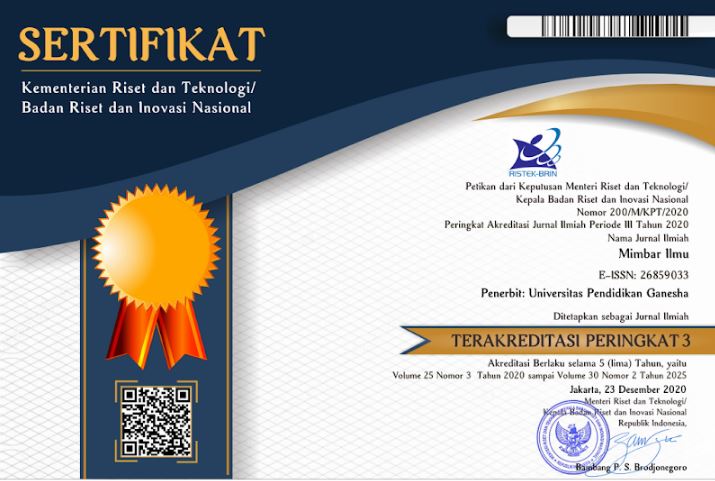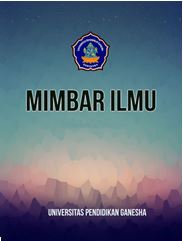The Contribution of Learning Culture and Soft Skills in Improving the Character of High School Students
DOI:
https://doi.org/10.23887/mi.v29i2.75188Kata Kunci:
Learning Culture, Soft Skills, Student CharacterAbstrak
Character is a key issue in education, highlighted by the rise of adolescent promiscuity, drug abuse, crime, and radicalism, indicating a deepening moral crisis. This study aims to analyze the influence of learning culture and soft skills in improving the character of high school students. This type of research is survey research. The approach to this research is quantitative, with an ex post facto research design. The population of the study was 361 students. The sample was taken using the proportional random sampling technique with random sampling. The number of samples in this study was 218 people. Data were collected using the questionnaire method and document recording. Meanwhile, the instrument used to collect data was a questionnaire sheet. Data were analyzed using descriptive and inferential statistical analysis techniques. The results of the study showed a very significant path coefficient. Analysis of learning culture on student character obtained a very significant path coefficient, proving that learning culture has a direct positive effect on student character. Analysis of learning culture on student characteristics through soft skills obtained an indirect effect. Learning culture has a significant effect on student soft skills with a contribution of 65.5%. Learning culture and soft skills have a direct effect on student character with a contribution of 66.8%. It is concluded that, student character can be formed through a good learning culture and soft skills.
Diterbitkan
Cara Mengutip
Terbitan
Bagian
Lisensi
Hak Cipta (c) 2024 Ni Ketut Sri Kusuma Wardhani, Riesa

Artikel ini berlisensiCreative Commons Attribution-ShareAlike 4.0 International License.
This work is licensed under a Creative Commons Attribution-ShareAlike 4.0 International License.
Authors who publish with this journal agree to the following terms:
- Authors retain copyright and grant the journal right of first publication with the work simultaneously licensed under a Creative Commons Attribution License that allows others to share the work with an acknowledgment of the work's authorship and initial publication in this journal.
- Authors are able to enter into separate, additional contractual arrangements for the non-exclusive distribution of the journal's published version of the work (e.g., post it to an institutional repository or publish it in a book), with an acknowledgment of its initial publication in this journal.
- Authors are permitted and encouraged to post their work online (e.g., in institutional repositories or on their website) prior to and during the submission process, as it can lead to productive exchanges, as well as earlier and greater citation of published work.








